Who’s the man in the red sweater?
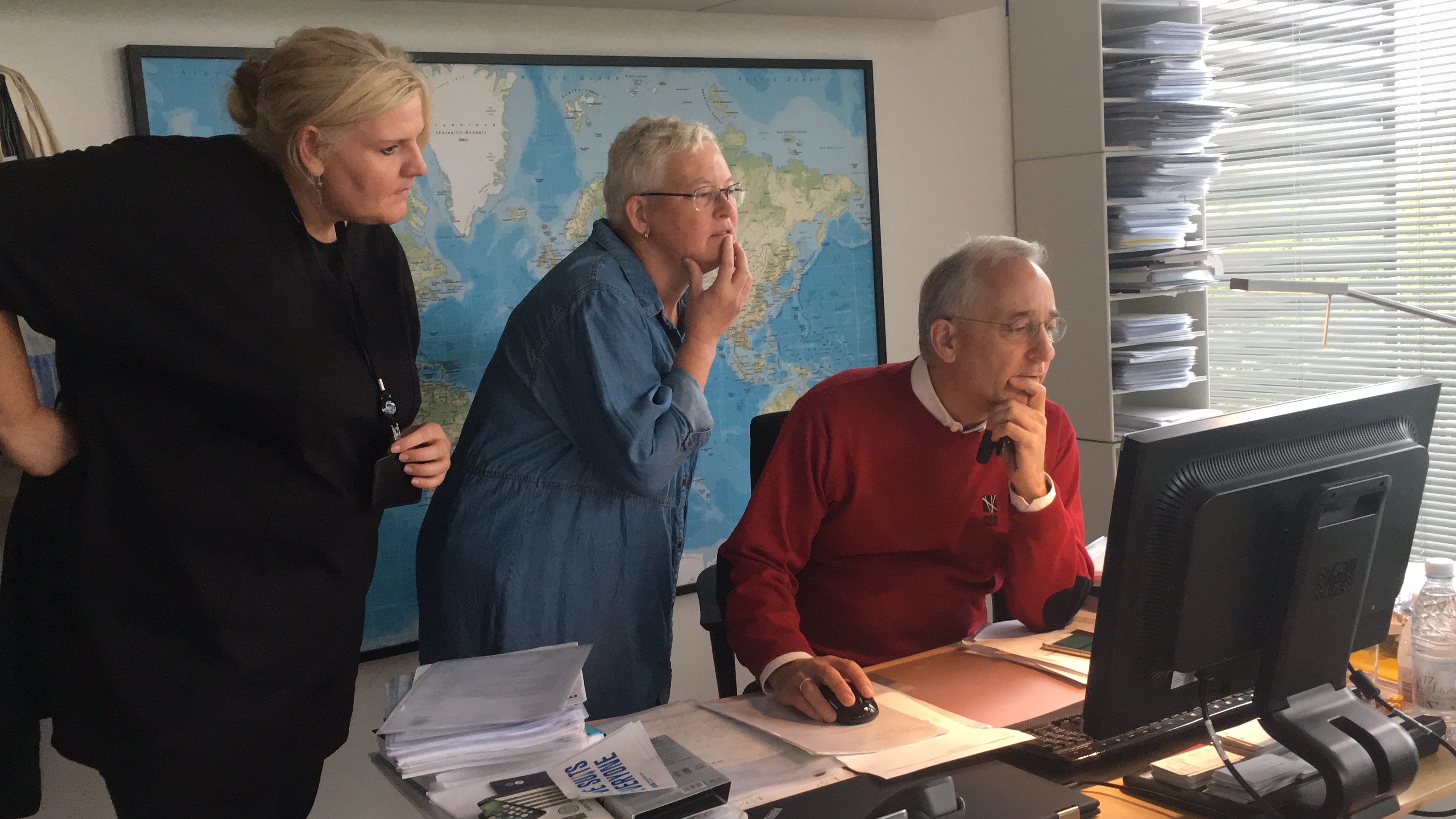
(Photo: Anne M. Lykkegaard)
He grows his own vegetables and he rarely eats lunch, a habit he got from his time working as a forester in Canada. And then he has a batch of four red sweaters. CBS WIRE spent an entire day with Per Holten-Andersen, the President of CBS, in order to get to know him better.
Per Holten-Andersen. The President of CBS. The man in the red sweater.
He shakes hands with all of the new CBS students on their first day of school, he represents CBS in political cases, and is involved with the managing of about 23,000 students and 2,200 staff members.
But who exactly is Per Holten-Andersen and how does he spend his time on a regular day while the students attend lectures, researchers write scientific articles, the administrative staff sort out IT problems, and the cantina staff prepare the lunch?
To find out, CBS WIRE got the chance to spend a day with Per Holten-Andersen and asked him a bunch of different questions. Those he answers in a Q&A underneath the video.
“I’ve got four sweaters”
Past dinner time, Per Holten-Andersen had time to sit down in his office and answer some questions from CBS WIRE.
AML: “I just noticed the sign over there saying: ‘Next year I will wear a blue sweater’. Why do you wear a red sweater so often?”
PHA: “It’s a long story. Do you want the whole story?”
AML: “Is there a short version?”
PHA: “Well, there is no short version. It has a lot to do with collaborating with students and symbolizes the importance of students.”
“During my old job (Dean of the Faculty of Life Sciences, University of Copenhagen red.), I was given a red sweater by the student union. When it became public that I was going to be the next president of CBS, the chairmanship of CBS Students visited my old office and gave me a little present, which was a new red sweater. So, that’s the short version of why I wear the red sweater as often as possible.
It represents that the collaborations with and the views, and goals of the students are extremely important to me. It’s not only important but also enjoyable to meet and discuss with students, and the red sweater symbolizes all of those things.”
AML: “How many have you got at home?”
PHA: “I think I’ve got four. Of course, they have to be washed, and sometimes ironed, so, all together there are four sweaters. And they all have this logo on.”
No lunch – but lots of cake
AML: “I’ve heard from some of your colleagues that you like layered cakes, a lot. Especially the Danish type Gåsebryst.”
PHA: “Yes, and what do you call a “goose’s breast” in English? I don’t know. But yes, I like them very much. I guess it is the combination of having a sweet tooth, the marzipan, and the overall taste of it. And the enormous amounts of calories in one cake. So, that’s my favorite cake, yes. And it is also my favorite because the student cantina actually produces it, which means that it’s locally produced.”

AML: “Do you always have time for lunch?”
PHA: “The short version is no. I normally don’t eat lunch. And I have actually, over the many years, practised that quite often. Sometimes, I actually only eat one meal per day. It’s not because I lack time, it’s simply a habit that I have acquired over the years. The habit dates back more than 40 years ago when I worked in the Canada as a forest laborer, far out in the native forest on Vancouver Island. If you had your lunch bag with you, you might be three or four kilometers away from it by lunch time. I couldn’t be bothered to go back and get my lunch, so, I got into the habit of only eating once a day. And sometimes I do that here as well.
AML: “So which meal of the day would that be?”
PHA: “That would be dinner.”
AML: “So you don’t eat breakfast?”
PHA: “Sometimes, I don’t even eat breakfast. Those might be the days when I’m grumpy. It’s a habit that I’ve actually consulted a doctor about, in order to find out if it was unhealthy. His response was: ’If it suits you, it’s fine.”
You may ask some of the staff if I get grumpy when I don’t eat lunch, but I guess I eat lunch twice during a week.
AML: “Not on the weekends?”
PHA: “On the weekends, I do. But during the week, not very often.”
The classics
AML: “What kind of music do you listen to?”
PHA:” I’m a very classical music type. Long ago, I played music myself. Mainly piano and violin music, and thereby, I’m very much in favor of classical concertos – especially Sibelius, the famous Finnish and a little bit melancholic composer. So, violin and classical music.”
AML: “Can you recommend a good book to read?”
PHA: “Not just one. However, during my present job, it’s actually been quite a long time since I’ve read a book from page one through to page 350. It’s been more than a year since I’ve done that.
But 10 – 15 years ago, I read about 10 books a year, big books. But the main type of literature that I favor is actually historical novels. Either novels based on a core of facts with some fiction, or outright historical novels. I’ve also read many, many biographies and to me the most important one is written by a famous English politician named Roy Jenkins. He was the chairman of the European Commission in the late seventies; the only Brit ever to become the chairman, and he wrote a very famous biography on Winston Churchill. A whopper, and a fantastic book containing. I would recommend that to anyone. So, the next time I meet you, I’ll ask you if you’ve read it.
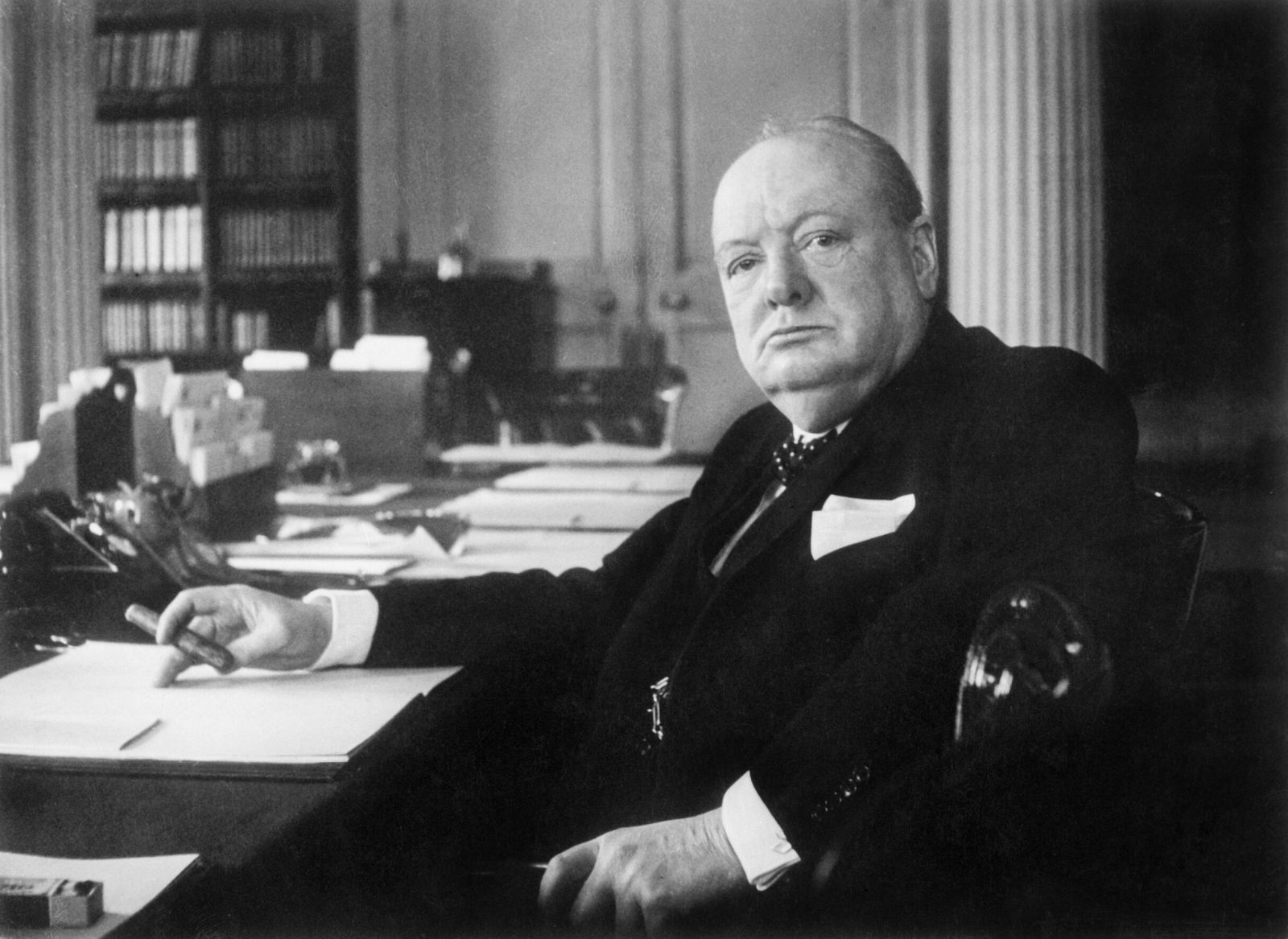
There are, of course, also some fantastic Danish books. I’ve read historical novels by the author Johannes V. Jensen. It has been many years since I’ve read them, but I more or less remember all of them, almost page by page. One of them is called ‘Life’s Long Journey’ (Den Lange Rejse Red.) and I read that one when I was in primary school.
Another well known Danish author is Thorkild Hansen. Although he is not as famous as Johannes V. Jensen, he wrote four books that I read while I was in my twenties. I still remember them very well. The titles of the books are ‘Coasts of Slaves’, ‘Ships of Slaves’ andThe Slaves’ and ‘Islands of Slaves’. He also wrote Happy Arabia (Det Lykkelige Arabien Red.) They are extremely well written books.
But as I said, it’s been more than a year since I’ve had the time to sit down and read a long book. “
AML: “Do you miss reading?”
PHA: “Yes. But the problem is that when I start reading a book, it might be three weeks before I get to read the next chapter, so I forget the context and the story. I enjoy reading a book rapidly from page one through to 350. So, under the present conditions, I don’t read that many books.”
Ghandi, homegrown vegetables and honesty
AML: “Who do you look up to?”
PHA: “I’ve actually almost given you the answer. In history, there is no doubt that the biggest leader of the past 100 years was the British prime minister, Winston Churchill. He saved Europe. He probably saved more than Europe. He was a fantastic leader and he wrote some fantastic books. I have read every single book written by him and there are more than 20 of them.
Actually, there is another outstanding person I highly admire. He is the very opposite of Winston Churchill, and that’s Mahatma Ghandi. He had a fantastic personality with an enormous emphasis on values pertaining to human rights and human dignity. However, he had a very bleak destiny, as he was murdered. He has gone down in history as one of the beacons of human rights and human dignity, which means that he has been monumentally important to both Indian and European culture.”
AML: “You told CBS WIRE at Responsibility Day that you grow a lot of your own food at home.”
PHA: “It’s a bit of an exaggeration that I do it myself because we do it as a family. We don’t buy very much food, we produce most of it ourselves, also meat. We almost live in a totally self-sufficient way.”
AML: “Could you give some examples?”
PHA: “We grow all types of vegetables. Such as potatoes, salads, and beans etc., and all of it is grown organically, which means that we don’t use any pesticides or insecticides. We also grow cherries, appels, pears, and we have two greenhouses where we grow grapes and tomatoes. We also produce meat, but not at home. One of my wife’s sisters has a close by farm where they produce meat.”
AML: “What does that mean to you?”
PHA: “I think it means that our children are much healthier than if they had been fed non-organic food. All of them are a lot taller than we are, so that’s probably a sign that they have been given healthy food. Also, when you grow your own food, you have to prepare it, so, all of our children are very keen cooks. They can prepare a delightful meal that can compete with any restaurant at any time. Because of that, I always eat at home and seldom go to restaurants.”
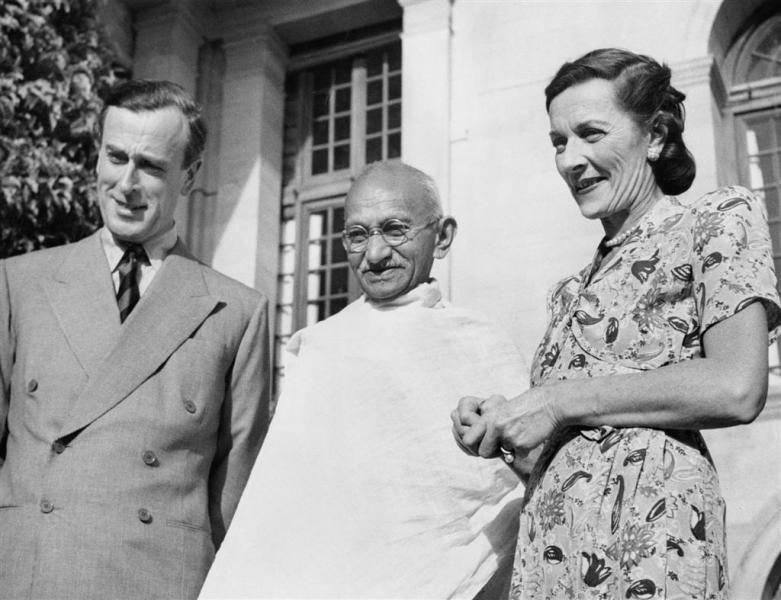
AML: “If you were to give a good piece of advice, what would it be?”
PHA: “Four things.
Be honest. That’s more difficult than just saying it.
Be true. There is always a price to pay for dishonesty.
Treat your fellow human beings fairly and correctly. I mean that very distinctly, because I think we’ve moved too far away from a standard of good behavior.
And finally, be thankful and enjoy the fact that we are lucky and priviledged to live in a country driven by human rights, where the rule of law reigns, and where we have a functioning democracy. Be grateful for the things that we most often take for granted. There are many places around the globe where they are not as lucky as we are. We are the lucky generation reaping the benefits and we must understand that we are living our lives the way we do because previous generations invested in us. In the same spirit, we shall pass on these privileges to the next generation by investing now, in their future.
AML: “At some time, when your time at CBS is up….”
PHA: “When I kick the bucket you mean? or when I leave CBS?“
AML: “When you leave CBS that is. What do you hope to be remembered for as the president?”
PHA: “Well, what I really hope for, at this level – Per raises his hand up high – is that people have perceived me as someone who is honest, that I try to do what is best for the institution, and that integrity has been driving answers, questions and processes. That’s what I hope for.”



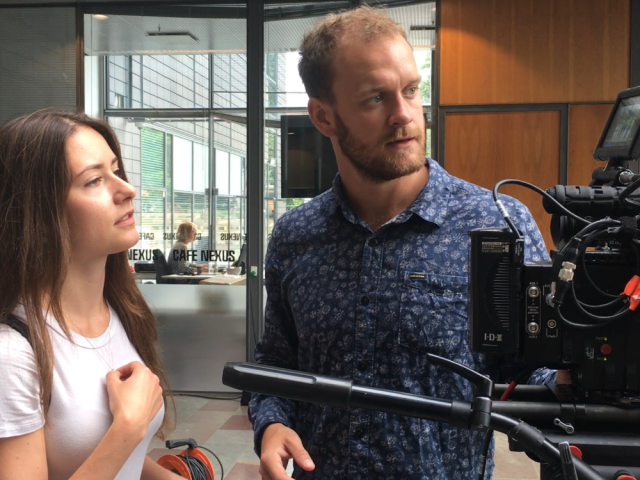
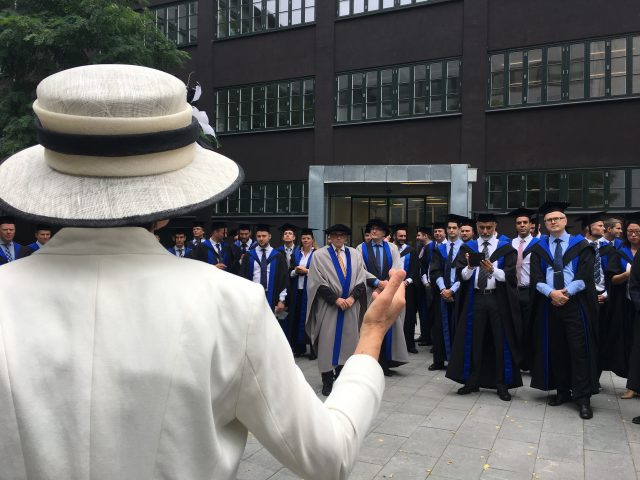
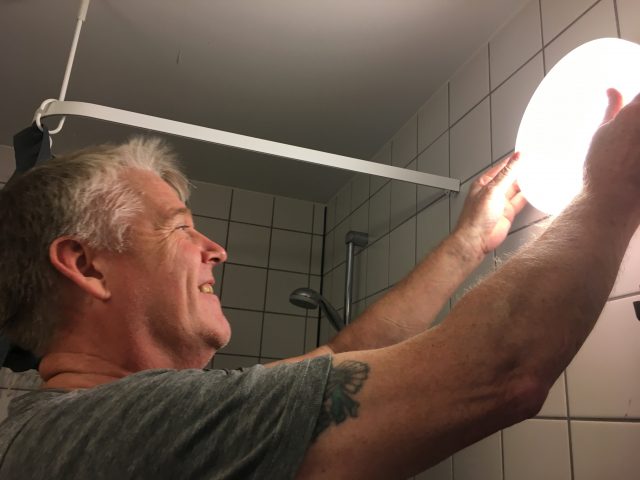
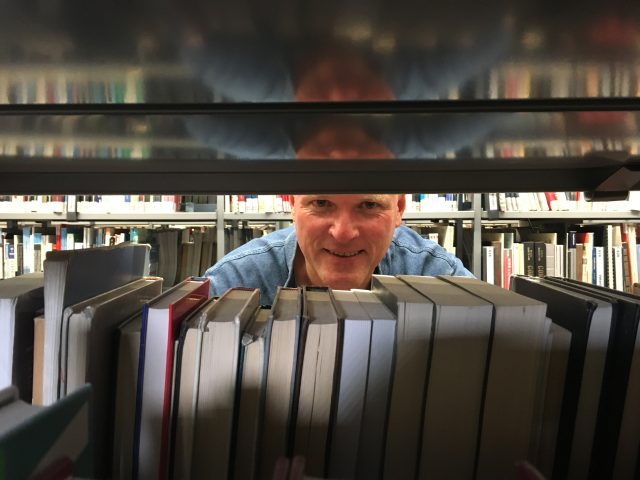
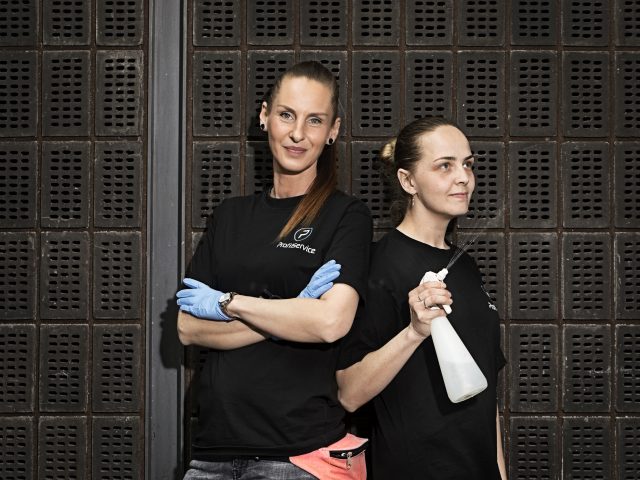
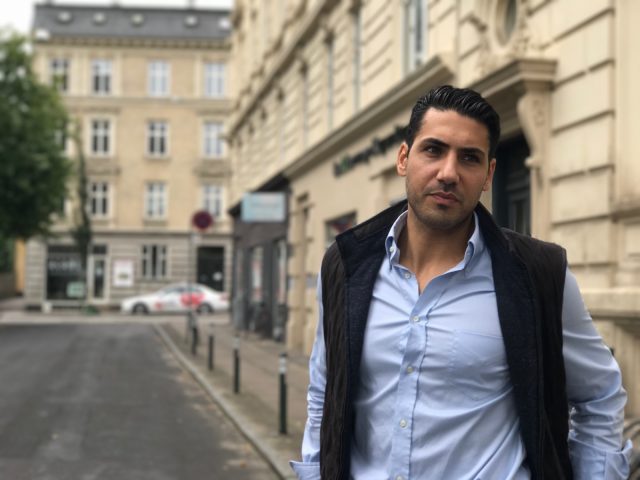
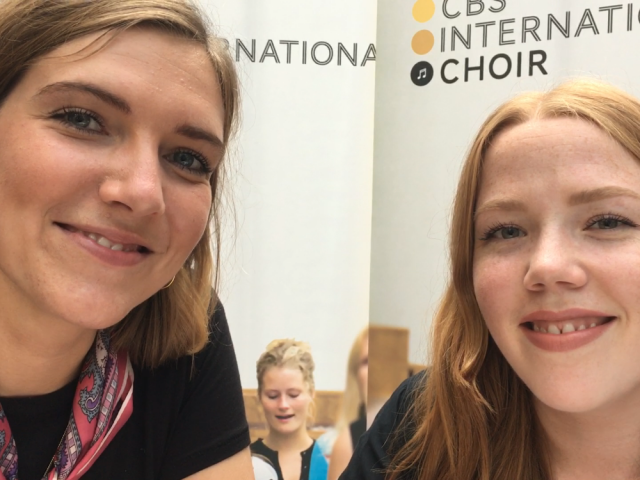




























































































































Comments